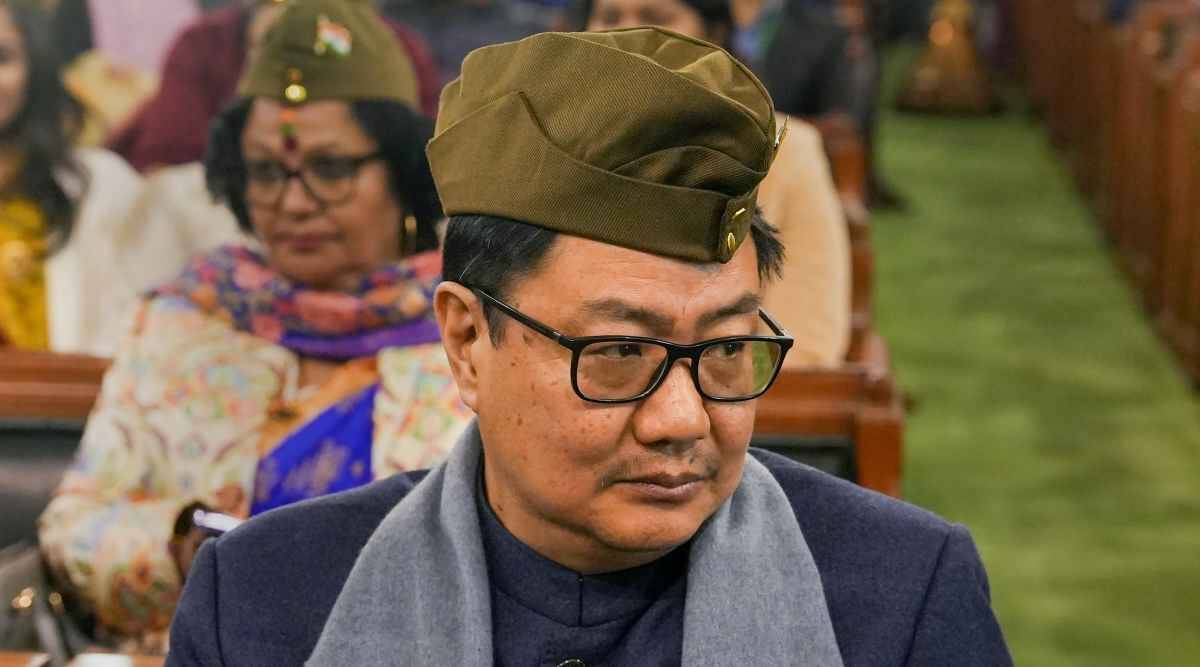There is no Mahabharat, argues Union Minister Kiren Rijiju, who is in contact with CJI D. Y. Chandrachud.

A day after sharing a video of a retired High Court judge claiming that the Supreme Court had “hijacked” the Constitution, Union Law Minister Kiren Rijiju stated on Monday that there was no “Mahabharat” between the Government and the judiciary, and that there would be “debate and discussion” in a democracy.
The Law Minister stated during an event at the Tiz Hazari courts in Delhi that he has “live contact” with Chief Justice of India D Y Chandrachud. He stated, “We debate anything, from simple to complex subjects.”
During his speech, Rijiju referred to a letter written by former CJI N V Ramana on criticism of judges on social media and stated that judges are cautious while delivering verdicts that could elicit a strong response from the public.
He stated, however, that unlike politicians, judges do not have to run for office again.
Rijiju published on Twitter on Sunday an interview tape of former Delhi High Court Judge R S Sodhi declaring that the “Supreme Court has, for the first time, hijacked the Constitution…it stated we will pick the judges and the government would have no involvement in this.” The Law Minister tweeted that “the bulk of people share rational perspectives.”
The tweets were published days after the CJI-led Supreme Court Collegium made public its reasons for reiterating the Government’s objections to the appointment of at least three advocates as High Court judges.
Monday at the Tiz Hazari event, Rijiju mentioned the letter from former CJI Ramana and stated, “Even judges are cautious these days. They will not render judgements that could provoke a strong reaction from society. In the end, a judge is a human being who is influenced by public opinion. The influence of (social media monitoring) on judges is immediate.”
According to him, the former CJI had proposed a bill to address social media criticism of judges. Rijiju stated that when a “huge number of individuals” have access to social media, nothing can be done.
Then, contrasting judges’ appointments to the elections faced by politicians, Rijiju stated, “A judge is appointed only once, therefore he does not have to run for office again. The public cannot observe judges… Because the general public does not elect judges, they cannot be removed from office. However, the public is watching you. People are observing your decisions, the manner in which you administer justice, and the way in which you judge.”
Additionally, Rijiju stated that there was no friction between the executive and the court. “How can it be a democracy without debate and discussion? If there is a disagreement between the government and the court, some people portray it as a Mahabharata, but this is not the case,” he remarked.
Referring to a second letter he had submitted to Chief Justice Chandrachud “suggesting” the inclusion of a Government nominee in the process of shortlisting judges for appointment, Rijiju stated that it was his “responsibility” to do so. “I penned a letter advancing the concerns before the 2015 five-judge bench,” he explained. The constitutional amendment that established the National Judicial Appointments Commission (NJAC) was declared “unconstitutional” by a five-judge panel in 2015.
In addition, the Minister of Justice said that a strong, independent court is necessary to strengthen a democracy. “The Modi administration has taken no action to undermine the judiciary. Our work demonstrates our regard for the institution… “Democracy cannot be successful if the authority and dignity of the court are diminished,” added Rijiju.



